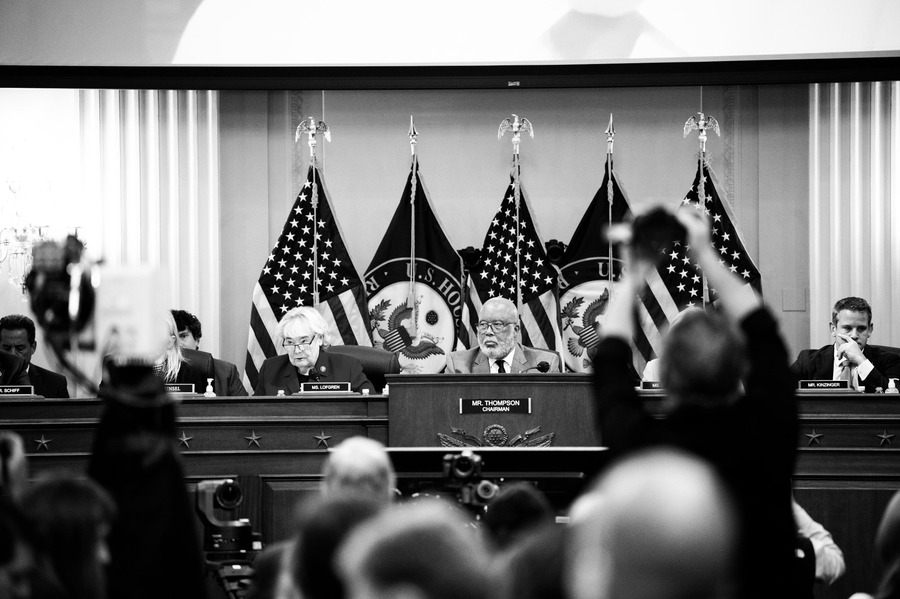Scalia and Foreign Law
On November 18th, at the Federalist Society’s National Lawyers Convention, I joined a trio of eminent national-security-law experts—Texas’s Steve Vladeck, the Brennan Center’s Liza Goitein, and GW’s Brad Clark—for a lively panel on Justice Scalia’s legacy in our field. That was also the theme of an essay I wrote for Lawfare in the wake of Justice Scalia’s passing in February.
Published by The Lawfare Institute
in Cooperation With

On November 18th, at the Federalist Society’s National Lawyers Convention, I joined a trio of eminent national-security-law experts—Texas’s Steve Vladeck, the Brennan Center’s Liza Goitein, and GW’s Brad Clark—for a lively panel on Justice Scalia’s legacy in our field. That was also the theme of an essay I wrote for Lawfare in the wake of Justice Scalia’s passing in February. (And of Steve’s somewhat more critical response.)
The panel touched on a topic that I omitted from my earlier piece, but which I think is an underappreciated aspect of Justice Scalia’s legacy in this space: his interest in—indeed, his enthusiasm for—foreign and comparative law.
It’s widely known in the legal community that Justice Scalia did not consider foreign statutes or judicial decisions, present-day international law, or global public opinion relevant indicia of constitutional meaning. That follows from the originalist view that the Constitution’s text means today what the people of the United States understood it to mean when it was ratified. Plainly, foreign law and international public opinion are not relevant evidence of that original public meaning.
Unfortunately, some observers have taken this to mean that Justice Scalia was some kind of backwoods jingo or xenophobe. One online commentator even published a piece the day after the Justice’s passing claiming that foreign judges would be celebrating his death because of his attitude toward foreign law.
It goes without saying (although apparently it needed saying) how cruel and tasteless that is. But it is also completely wrong. The Justice was immensely curious about foreign legal systems. As a young man, he studied at the Université de Fribourg in Switzerland. He taught each summer at law schools in Europe. He traveled abroad many times each year and had a rich network of colleagues and friends in foreign judiciaries. I would wager that he knew far more about continental civil law than any of those who sneered at his supposed provincialism. A shelf in his office was jammed with thick tomes on foreign and comparative law—many in European languages he could read.
Indeed, the Justice even cited European law in his opinions when it was appropriate—that is, as merely illustrative rather than as evidence of constitutional meaning. For example, his 2012 dissent in Lafler v. Cooper treated at some length continental systems’ rejection of prosecutorial charge-bargaining. (Chief Justice Roberts, for reasons undisclosed, joined all of the dissent except that Part.) Specifically, Justice Scalia’s dissent pointed to German practice to illustrate that plea bargaining is not a core element of a just system of criminal prosecution but rather “an embarrassing adjunct”:
In many—perhaps most—countries of the world, American-style plea bargaining is forbidden in cases as serious as this one, even for the purpose of obtaining testimony that enables conviction of a greater malefactor, much less for the purpose of sparing the expense of trial. See, e.g., World Plea Bargaining 344, 363–366 (S. Thaman ed. 2010). In Europe, many countries adhere to what they aptly call the “legality principle” by requiring prosecutors to charge all prosecutable offenses, which is typically incompatible with the practice of charge-bargaining. See, e.g., id., at xxii; Langbein, Land Without Plea Bargaining: How the Germans Do It, 78 Mich. L. Rev. 204, 210–211 (1979) (describing the “Legalitätsprinzip,” or rule of compulsory prosecution, in Germany). Such a system reflects an admirable belief that the law is the law, and those who break it should pay the penalty provided.
I can imagine Justice Scalia in chambers trying to teach that term’s law clerks to pronounce “Legalitätsprinzip.” He sprinkled his speech and writing with literary references, foreign idioms and Latin maxims, all of which he declaimed with the clarity and relish of a Shakespearean actor.
One of Justice Scalia’s virtues, however, was that he was able to separate the subjects he found personally interesting from the subjects that were relevant to his role as a judge. He refused to rely on foreign law in interpreting the Constitution not because he held foreign law in disdain—he did not—but because to an originalist it is not relevant evidence of constitutional meaning. Justice Scalia’s refusal to use foreign law for this purpose was not arrogance or jingoism. It was self-restraint—the restraint to deny himself the pleasure of indulging his intellectual predilections where doing so would exceed the appropriate bounds of the judicial role.
Tellingly, those who sneered at Justice Scalia’s refusal to consider foreign law in constitutional interpretation rarely bothered to explain why he was wrong, as opposed to merely unfashionable; that is, why it is consistent with our Constitution and its system of representative government for unelected judges to narrow the policy options available to the American people and their elected officials based on choices made by other polities. There may be a persuasive answer, but I have yet to hear it.





